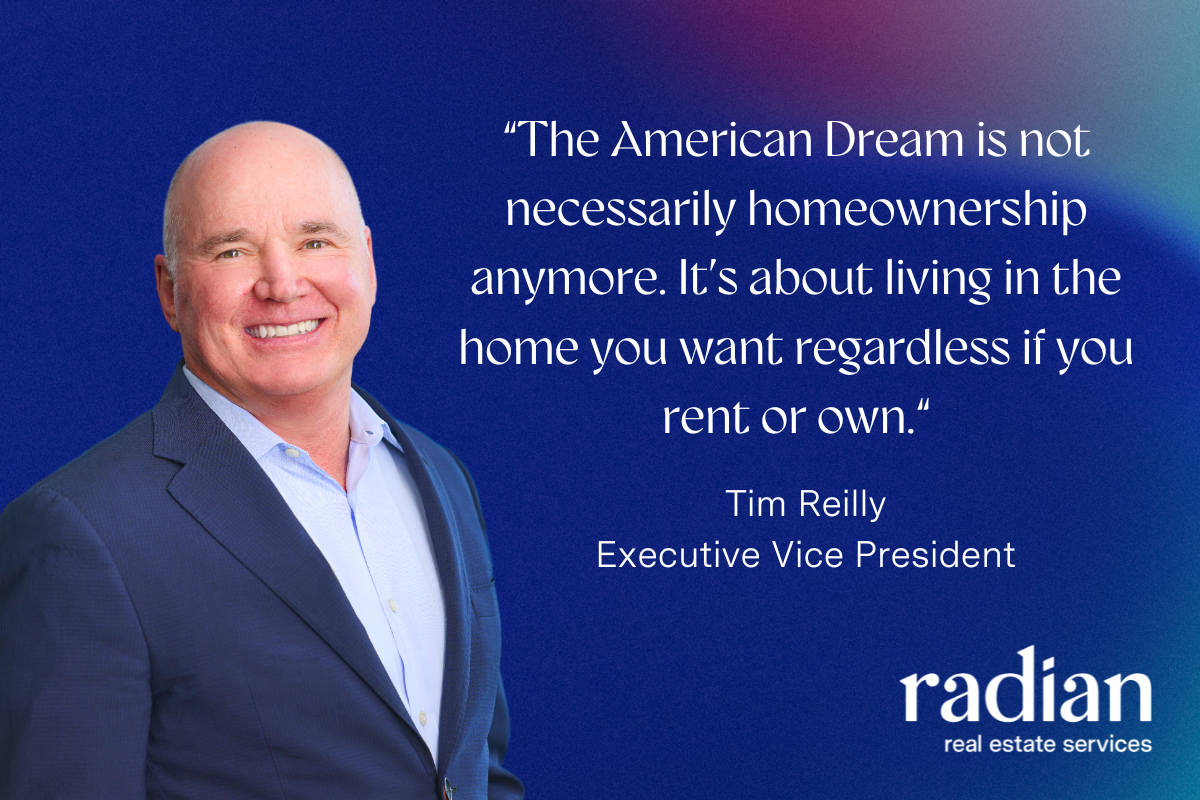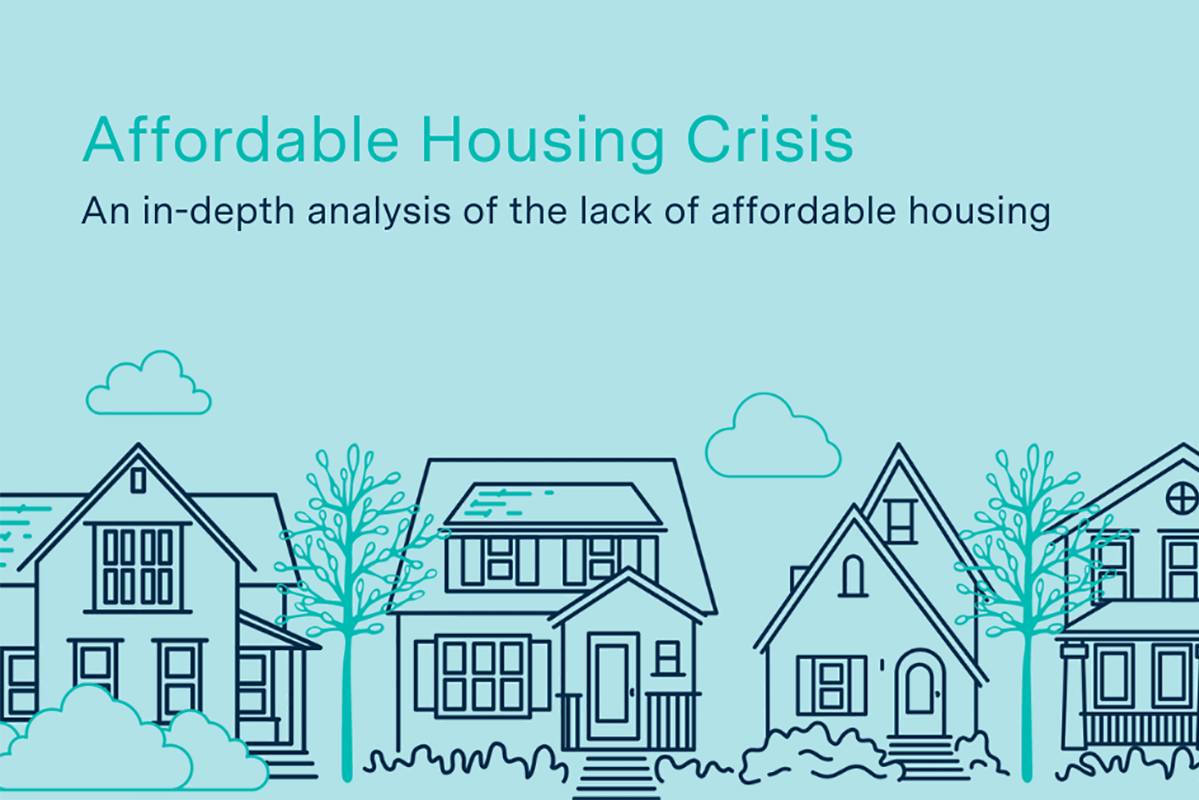November 18, 2020
C-Suite, Operations, Industry NewsRisk and Reward: A Women in Housing Special Edition
Betty Cohen, Radian’s SVP of Enterprise Risk Management, shares her insights on trends shaping the industry and advice to young professionals.

Betty Cohen
Senior Vice President, Enterprise Risk Management
How has managing risk in the industry changed in the past 10 years?
Betty: Over the past 10 years, risk management has become more challenging due to an increase in regulatory oversight, greater technological innovation and an increasingly complex environment. Risks are also emerging more rapidly than in the past and have become more interconnected.
An increase in cybersecurity and privacy regulations have resulted in greater scrutiny—from both regulators and clients—of companies’ policies and procedures, and their controls around the management of consumer data. Clients are also requiring more onerous contractual obligations in their agreements, placing a significant weight on operational units to comply with them. Third party risk, cybersecurity and data privacy have become more intertwined as companies have outsourced some of their core business functions. The use of third parties has increased the risk associated with handling and storing a company’s non-public information, resulting in the need for companies to strengthen the oversight of their vendors’ processes and systems.
Technological innovation, such as the adoption of artificial intelligence and machine learning, has accelerated as companies use data to make better decisions and enhance the customer experience, while reducing costs and processing time. However, these innovations come with increased model risk and cyber security risk, as well as regulatory and compliance concerns regarding potential bias or privacy issues. This has heightened the need for effective model governance structures and risk management processes to identify, assess, monitor and mitigate risks associated with individual models and to understand the interaction and dependencies among models. Data governance has also become more important as there is a greater reliance on data quality in the development and fine-tuning of models.
As a result, it has become more important for companies to break down silos and view risk from an enterprise perspective to ensure a comprehensive understanding of the impacts of the risks on the entire organization. Enterprise Risk Management (ERM) has had to evolve over the past 10 years in order to adapt to the rapidly changing risk landscape. There is more frequent communication between ERM and the business regarding emerging risks, greater alignment among the various compliance functions and increased involvement of ERM in the oversight of third-party risk, model risk and data governance.
Although ERM has matured over the past several years, it will need to continue to enhance its processes for identifying, assessing, monitoring and mitigating risks as the pace of change is not expected to slow down in the future. Thankfully, ERM is up to the challenge.
How has the current environment impacted risk and how we assess it?
Betty: The current environment has highlighted the importance of dynamic risk management processes that can quickly adapt to changing environments and rigorously assess the impact of multiple events simultaneously. Throughout 2020, risk managers have had to evaluate the effect of various major events on the health and safety of their companies’ employees, as well as the viability of their businesses. The COVID-19 pandemic, economic recession and recent natural disasters, such as hurricanes in the South and wildfires in the West, have required leaders to rapidly make significant changes to their companies’ operations, potentially exposing them to new and different types of risks.
Communication between business leaders and risk managers has become critical in the identification, assessment and mitigation of emerging risks during this time. Financial projections can vary widely given the substantial uncertainty about the economy and lack of recent historical data to determine the future impact of the pandemic. Therefore, the use of scenario analysis in decision-making is extremely important, and the assumptions used should be updated frequently as events change rapidly. In the remote environment where the workforce may be feeling a heightened sense of isolation and uncertainty, it is essential for employees to feel comfortable in expressing their concerns to management. Employee insights regarding their work environment, customers and processes could impact the company’s financial condition so they should be factored into risk assessments and leadership’s decision-making.
While the current environment has strained the risk assessment process and tested management’s decision-making capabilities, leadership and employees have been forced to adapt and develop processes and action plans that can be utilized in the future if similar events occur, making their companies more resilient in the long term.
What advice do you have for women just getting started in their careers today?
Betty: Be flexible and open to opportunities. Given that many companies are more focused on inclusion and diversity, there could be opportunities open to women today that were not possible years ago, so it is important not to limit yourself by fear of failure. Be thoughtful about your career choices but realize that your path could take unexpected twists and turns that could lead to exciting growth opportunities for you.
Continue to expand your knowledge and skillset. The world is changing rapidly, and it is important to be able to adapt your skillset to what companies need. As new industries and roles emerge, take advantage of webinars and continuing education courses offered by your company, industry organizations or alumni associations to continue to learn and grow.
Identify mentors who can provide guidance. It is helpful to network and form relationships in your field of expertise and industry as others can help you to navigate the challenges that you encounter in the work world and provide insights for consideration as you reach various decision points along your career path. Participate in company events where you can meet others in informal settings or attend young leadership programs or college alumni events where you can interact with others who have similar interests or careers.
Ensure that a company’s values align with your own. When selecting a company to work at, it is important to understand the company’s values as they will impact your growth and development within the company and how you are perceived externally. Working is more than what you do on a day-to-day basis - you should feel proud of working for the company that you choose.

Why Buying a Home Still Makes Sense in Today's Market: A 2025 Perspective
In today's real estate landscape, potential homebuyers might hesitate to enter the market. However, despite current challenges, several compelling reasons make homeownership an attractive option. With proper planning and understanding of available options, buying a home in 2025 can be a smart investment in your future.

Help Safeguard Property Transactions: A Deep Dive into Seller Impersonation Fraud
Understand the threat of seller impersonation fraud in real estate transactions. Help safeguard against these fraudulent activities by learning how scammers may use sophisticated methods to impersonate property owners and steal sale proceeds, warning signs to watch for, and potential protective measures including thorough identity verification, title insurance, and settlement services.

Housing Valuation Panel Recap: Is it Time to Sell or Can Values Rise?
In the ever-evolving real estate market, insights from industry leaders can help provide valuable insights for investors.

Single-Family Rental Market Insights: What Investors Need to Know for 2025
The recent IMN Single-Family Rental (SFR) West Forum in Scottsdale, Arizona provided valuable perspectives on the current and future state of the SFR market. Industry leaders shared compelling insights that demonstrate the resilience and evolving nature of this space.

Beyond the Rate Drop: Helping to Future-Proof Your Lending Strategy
The recent drop in interest rates may lead to an influx of purchase and refi volume for lenders. With this shift on the horizon, learn more about positioning yourself to meet customer needs and help borrowers at scale through proper use of technology and innovative solutions.

Homebuying Trends in the United States
Discover the state of homeownership in the US, including the significant disparities across racial and ethnic lines and the challenges that homebuyers face. Learn about the importance of addressing these disparities and creating more equitable pathways to homeownership for building wealth and ensuring accessibility for all.

5 Tips for REO Disaster Planning
Read about preventative measures you can take to minimize damage and recover quickly when a natural disaster impacts your properties.

The American Dream of Homeownership Starts with Financial Literacy
As we celebrate National Financial Literacy month this April, it’s a reminder of the important role that financial literacy plays in preparing for the homebuying journey. Learn more about financial literacy for homebuyers.

The Millennial and Gen Z Homebuyer
Recognizing and understanding behaviors of Millennial and Gen Z homebuyers can empower loan officers and real estate agents to engage these distinct generations of homebuyers.

Radian Launched Affordable Housing Crisis White Paper
Learn more about how increasing mortgage rates, skyrocketing home costs, and a lack of supply in the market have left many wondering if they will ever be able to afford a home.
